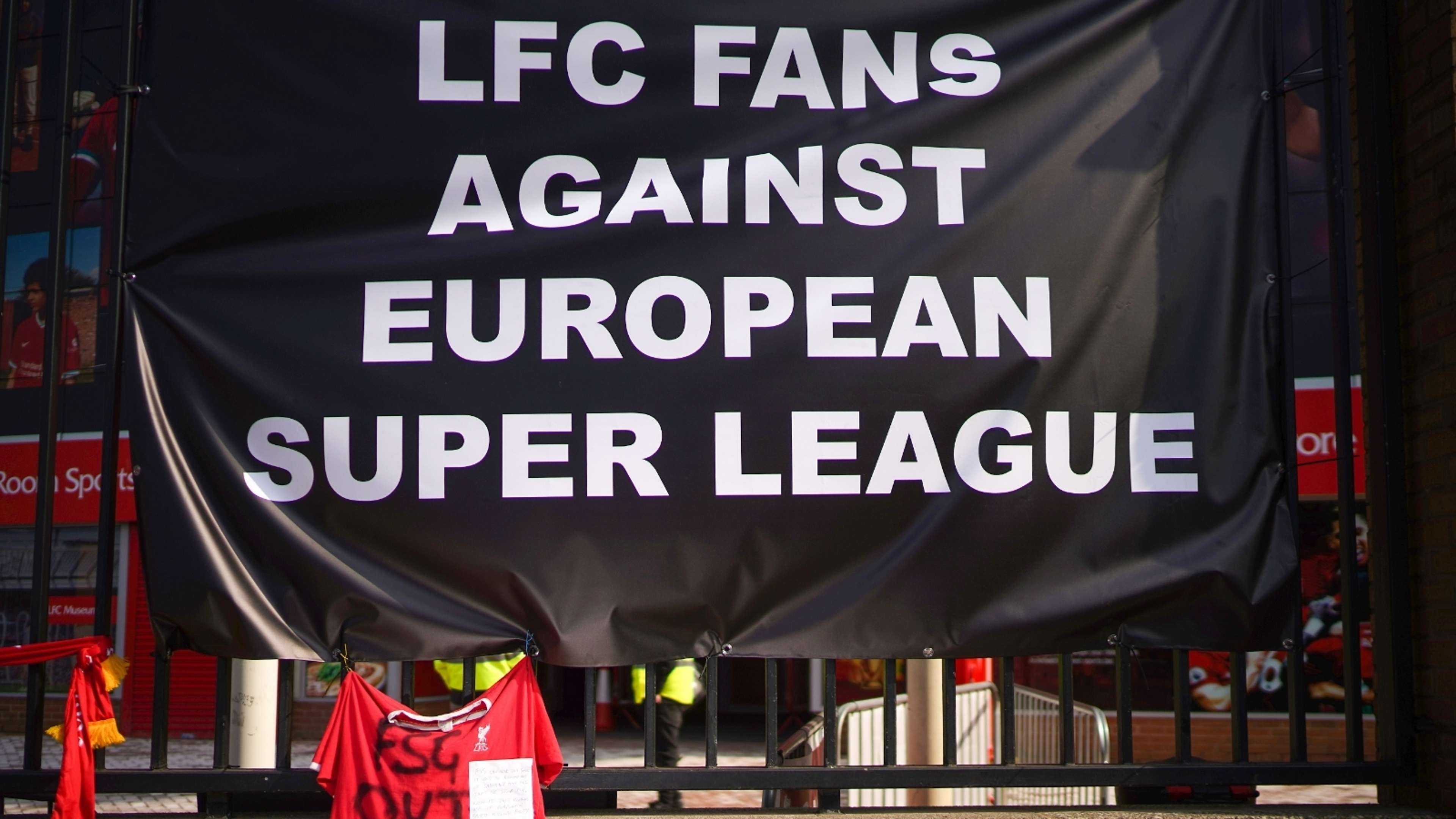The announcement of the Super League has been met with heavy backlash from all over the world of football, with the supporters of the clubs involved left angry, upset and disappointed.
The integrity of football as we know it could be threatened with the presence of a "closed shop" competition, with potentially devastating effects.
Goal takes a look at why fans have been protesting the Super League.
What is the Super League?
The Super League is a new breakaway league featuring 20 of the biggest clubs in Europe, including 12 established "founding clubs" – Arsenal, Chelsea, Liverpool, Man City, Man Utd, Tottenham, Atletico Madrid, Barcelona, Real Madrid, Juventus, Inter and Milan – set to rival the Champions League.
The 15 founding clubs will be competing in the tournament on a permanent basis, unable to be relegated (three more founding clubs are still yet to be confirmed).
Three additional guest teams will fill the remaining spots each year, based on their success in their respective domestic leagues.
It is understood that clubs playing in the Super League will still feature in their domestic leagues, but with the competition for the top four all but removed, and with their Super League presence never in danger, the tournament could threaten to imbalance football forever.
Why have fans been protesting the Super League?
There have been many reasons about why there has been so much backlash to the Super League, but the overwhelming issues are that the competition is elitist and exclusionary, removing healthy competition, and that the owners of the clubs involved seem to be more fuelled by financial reasons than by a genuine love of the game.
Fans of the "Big Six" Premier League teams were left upset and disappointed by the Super League announcement, having not been informed of the plans. Coaches and players were also not aware of the situation.
In the hours following the confirmation of the Super League, fans of the Premier League "Big Six" took to their stadiums to protest the announcement, with Liverpool fans hanging banners and flags outside of Anfield.
Chelsea supporters then voiced their concerns at Stamford Bridge in numbers prior to their Premier League game against Brighton.
Liverpool supporters' groups also made the decision to remove their flags from The Kop, protesting the owners' decision to "put financial greed above integrity of the game".
“We, along with other groups involved in flags, will be removing our flags from The Kop," Liverpool supporters’ group Spion Kop 1906 wrote on Twitter.
“We feel we can no longer give our support to a club which puts financial greed above integrity of the game.”
A key part of what makes football – and especially the Champions League – so exciting is that almost any club can have a chance of featuring in the competition, based on their performances on the pitch.
This season in particular, West Ham and Leicester have their best chance in years to qualify for the Champions League due to their impressive Premier League form.
The likes of Arsenal and Tottenham, however, who are "founding clubs", were languishing in ninth and seventh place respectively at the time of the Super League announcement.
 Getty
Getty"I like the competitive element of football, I like the fact that West Ham might play Champions League next year, no problem," Jurgen Klopp said following his side's 1-1 draw against Leeds, the day after the Super League plans were announced.
"I don't want them to, to be honest, because we want to, but I like that they have the chance."
But should the Super League be introduced, this breeding of healthy competition could be removed entirely and rendered meaningless should the biggest teams in Europe compete in a tournament where there are no consequences for losing.
The existence of the Super League would be devoid of the romantic nature of the Champions League (and effectively doom it, since the Champions League would run concurrently but without 20 of Europe's biggest teams), with the same huge clubs playing every single year with no threat to their participation status.
Their admission into this Super League, then, is based on financial merits instead of their genuinely good form as a team.
The concept of the biggest clubs in Europe facing each other on a weekly basis is an enticing one, but so is the idea that even the minnows and the underdogs could potentially beat out the heavyweight sides.
Pep Guardiola also outlined his desires to see healthy competition regularly, telling reporters: “It is not a sport where the relation between effort and success, effort and reward, does not exist.
“It is not a sport where success is already guaranteed, and it is not a sport when it doesn’t matter if you lose.
“That’s why I said many times, I want the best competition, the strongest competition possible, especially in the Premier League.
“It is not fair when one team fights, fights, fights, arrives at the top, and cannot qualify because success is already guaranteed for just a few teams.”

